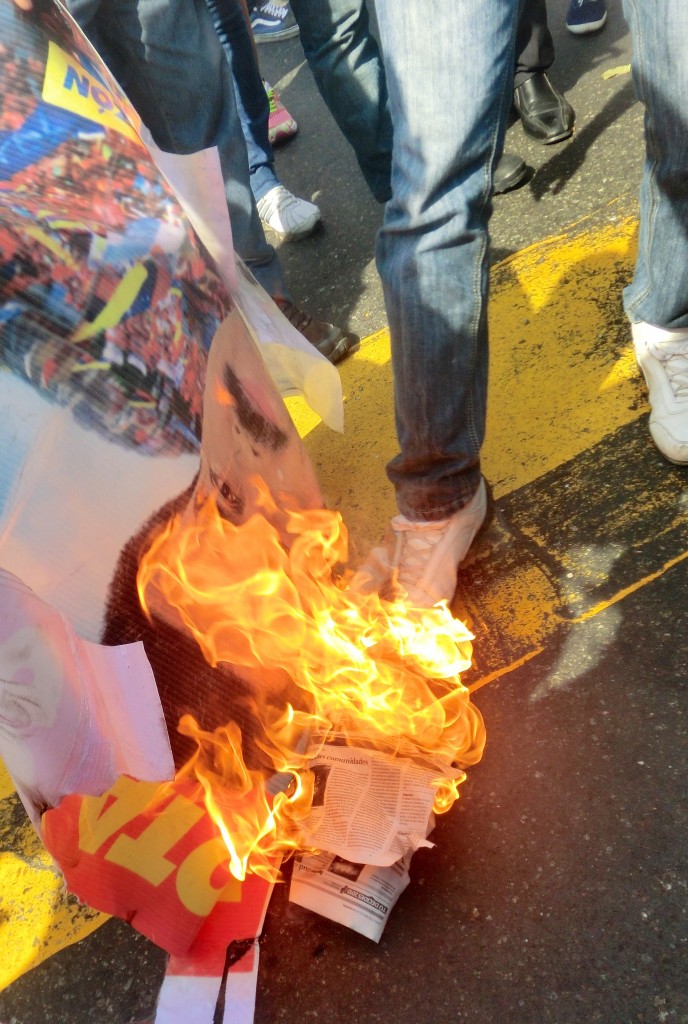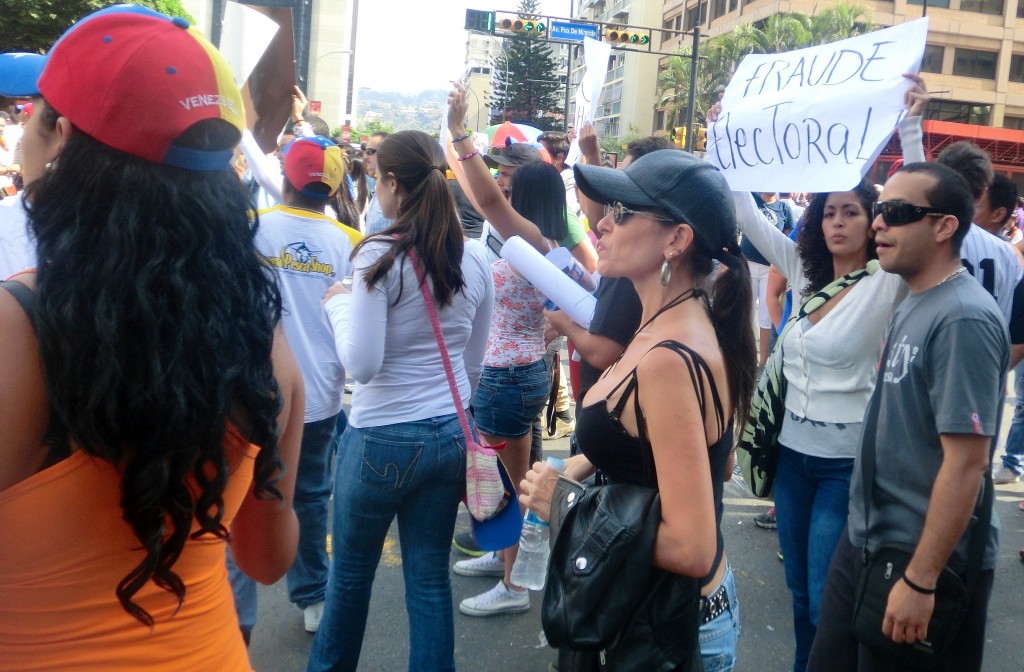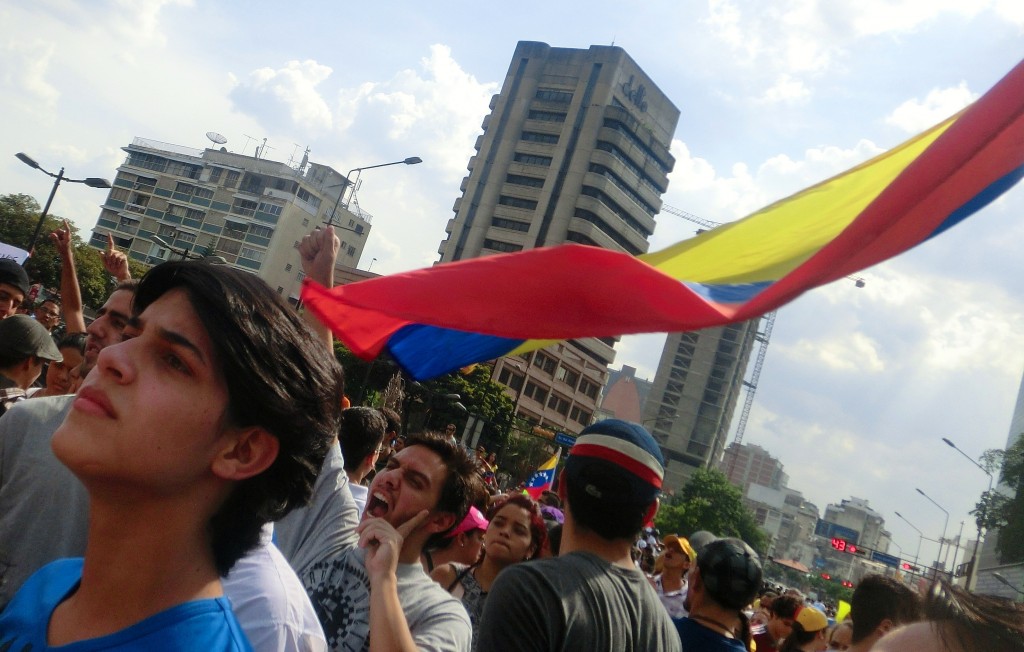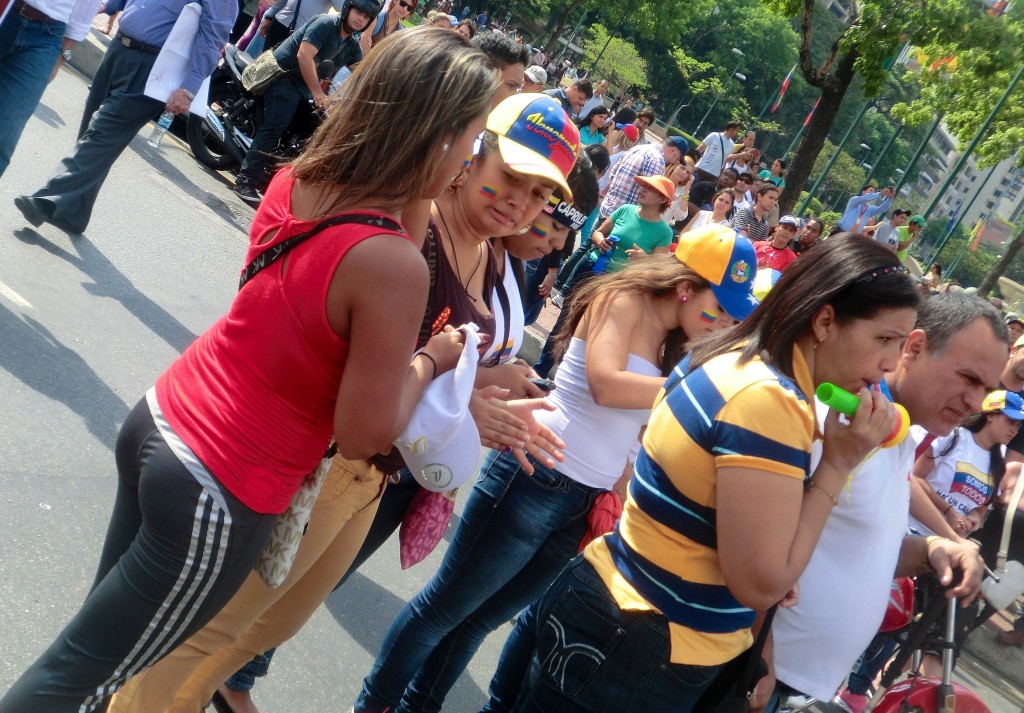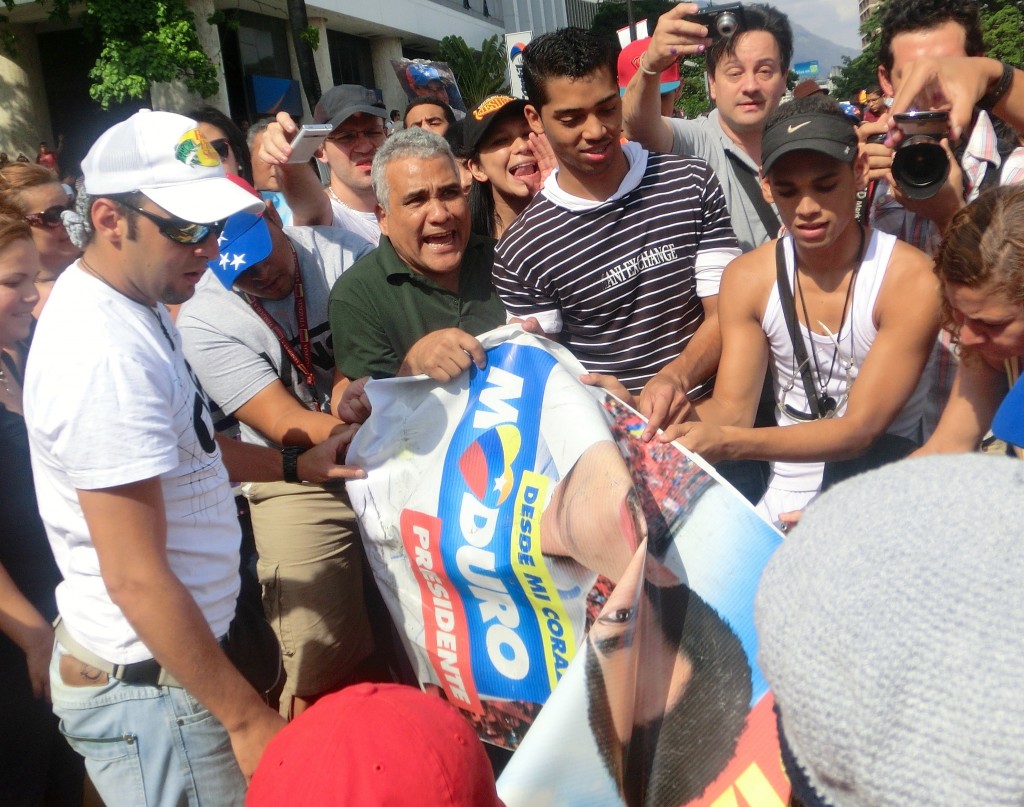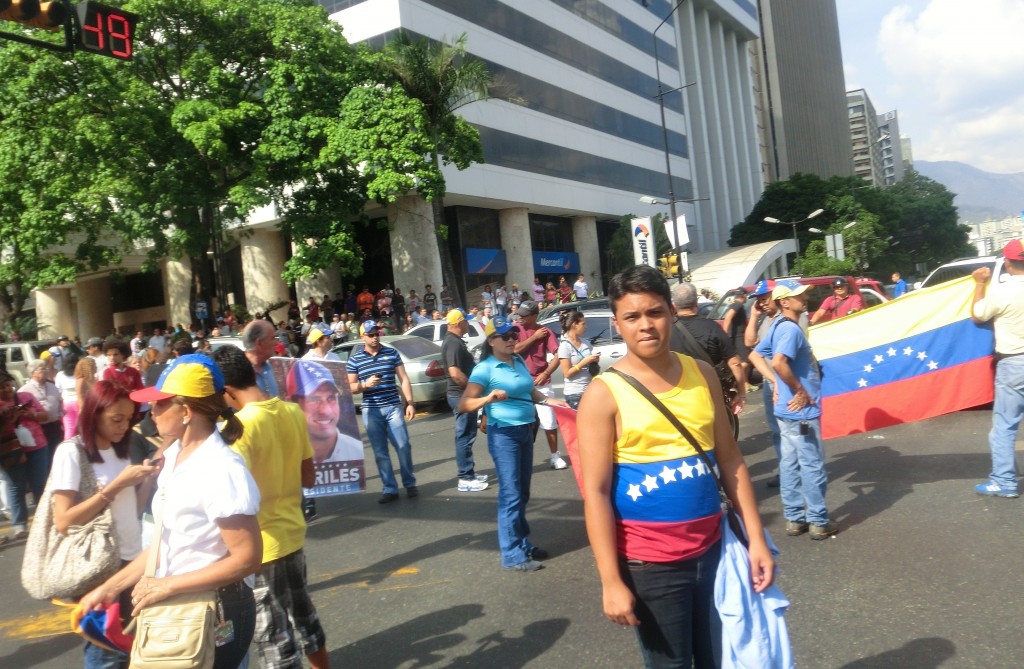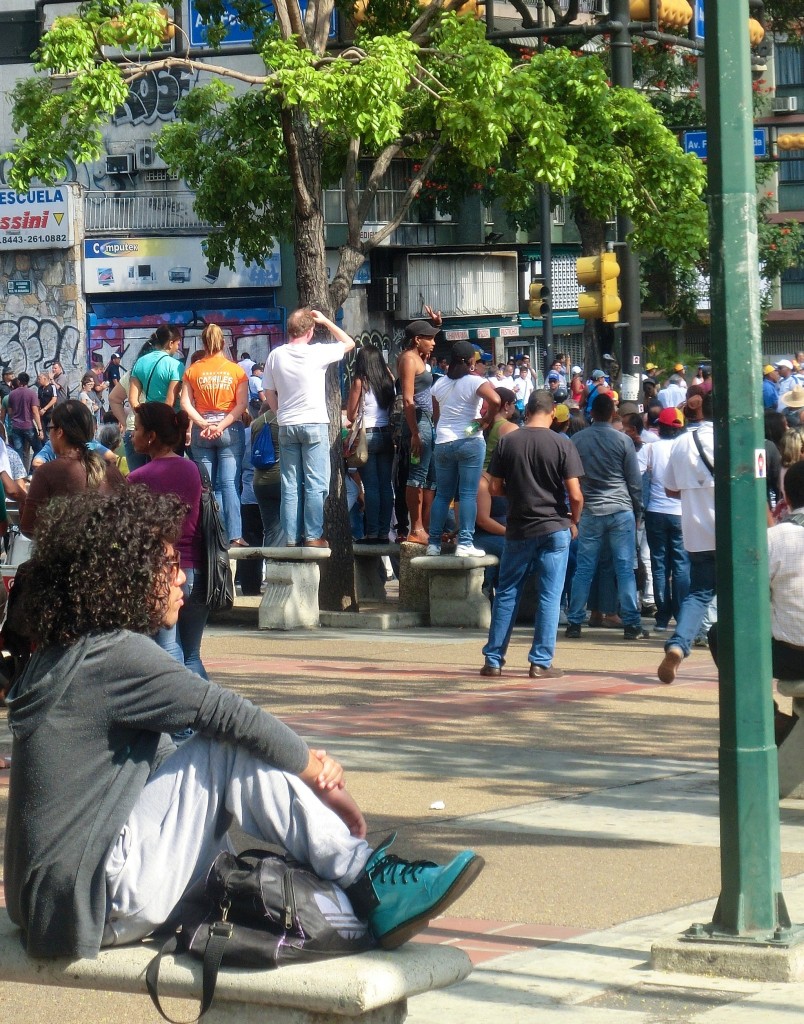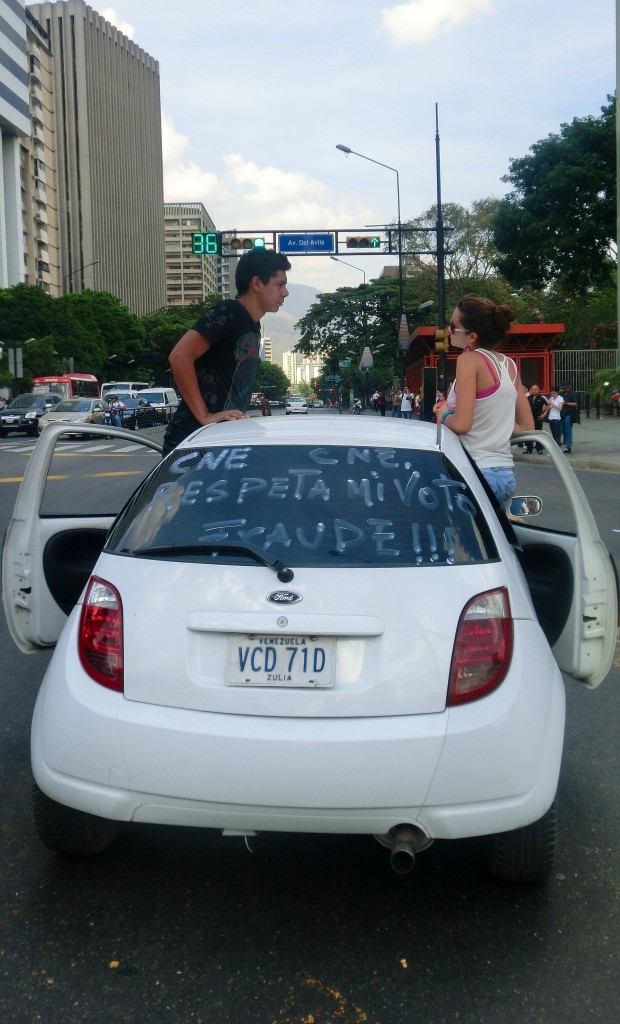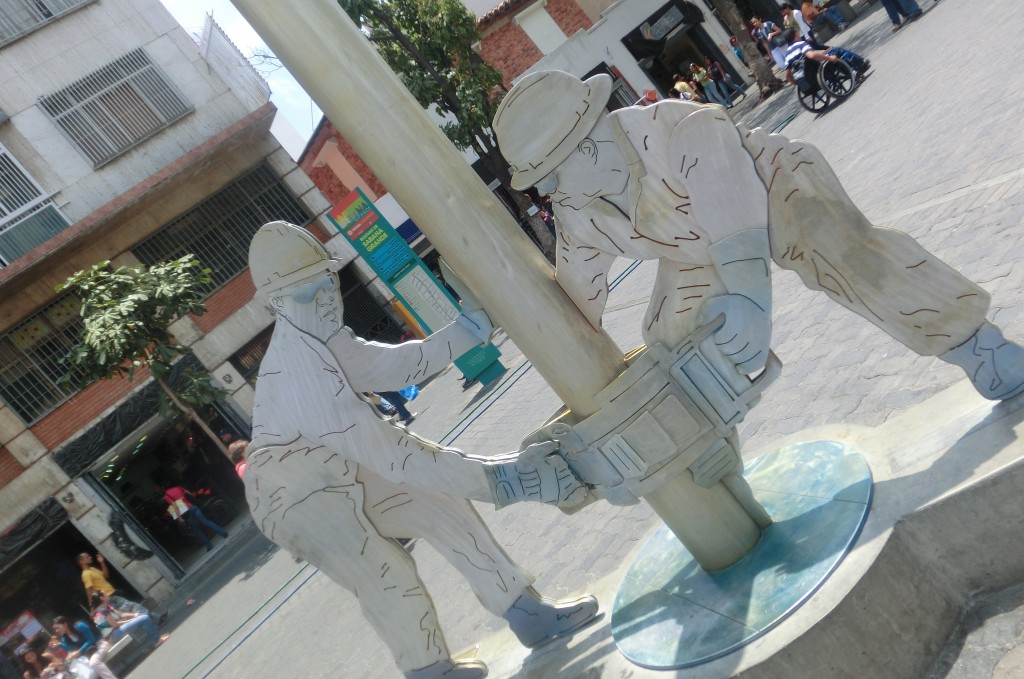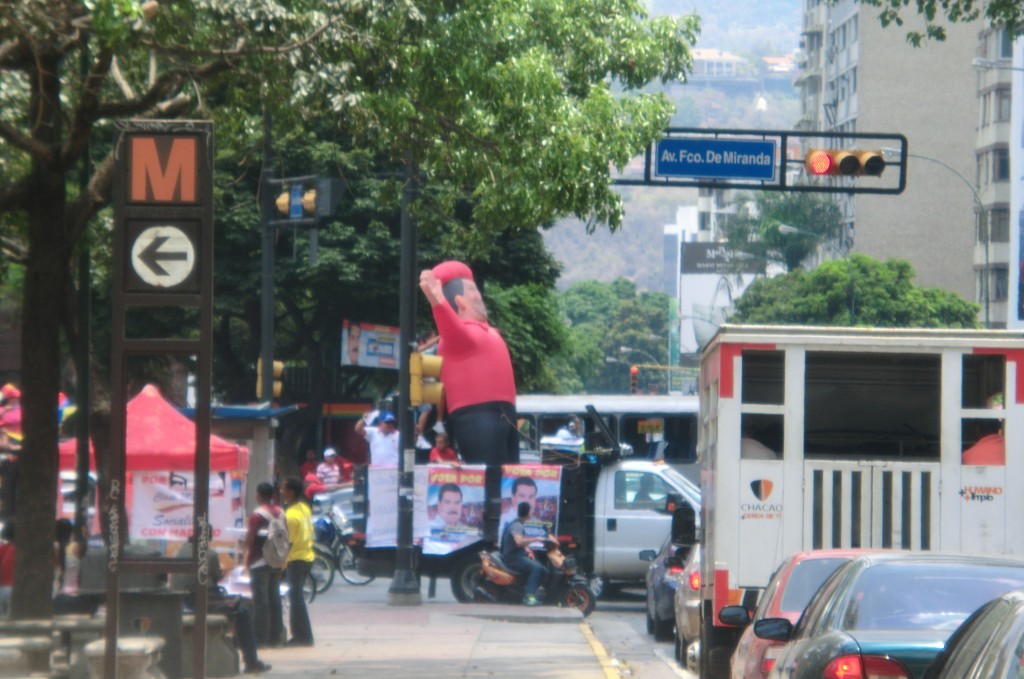
Venezuela remains in somewhat of a twilight zone following Sunday’s election — CNE (the National Election Commission) has declared Nicolás Maduro the winner by a narrow margin, but opposition candidate Henrique Capriles has refused to concede until a full audit of all of Sunday’s votes has been conducted.
The following days will put a brighter spotlight on Venezuela’s opposition than at any time since the early 2000s. The last broad opposition coalition, Coordinadora Democrática, disbanded in 2004 when it lost a referendum in August 2004 to recall Hugo Chávez from office by a lopsided margin of 59.1% to 40.6%.
Capriles (pictured above with Lara governor Henri Falcón)is the standard-bearer of a new, broader coalition — the Mesa de la Unidad Democrática (MUD, the Democratic Unity Roundtable). The MUD formed in January 2008, and Capriles was selected overwhelmingly to lead it into the October 2012 presidential election against Chávez. His loss to Chávez was by a margin of nearly 11%, but it was a better performance than any presidential challenger to Chávez in 14 years.
Capriles and the MUD have a lot of hard decisions ahead.
The first involves whether they have hard information that Maduro and the chavistas falsified the vote. As Maduro had the state media, the state oil company, the public bureaucracy and then some behind him, Sunday’s election was far from fair, though Maduro may have nonetheless won an essentially free vote, despite reports of all sorts of dirty tricks. But in the poker game that’s taking place today in Venezuela, we don’t know whether the MUD is holding a straight flush or a pair of 7s.
That defines the broader second decision facing the MUD — regardless of whether it thinks it can prove electoral fraud, will it do so? Capriles has two options here.
There’s the Al Gore / Richard Nixon model, whereby he can concede defeat for the unity of the nation, notwithstanding difficult questions about the election that may well never be answered, as was the case in the 1960 and 2000 U.S. presidential elections.
There’s also the Andrés Manuel López Obrador / Mikheil Saakashvili model. This is a high-risk / high-reward model. If Capriles presses his case on all courts, the result could be like what followed Georgia’s 2003 Rose Revolution, where Saakashvili mobilized popular opinion to dispute Eduard Shevardnadze’s fraudulent victory in the 2003 presidential election. But it could also be like the 2006 Mexican presidential election, when López Obrador fought an increasingly noisome battle against what most Mexicans concluded was a narrow but legitimate victory by Felipe Calderón.
But what is the MUD? So far, it’s been relatively united in the goal of bringing Venezuela’s chavismo chapter to an end, and it seems likely that the taste of victory in Sunday’s presidential election will fuel more unity. But it’s a far from homogenous coalition.
Here’s a look at its main components: Continue reading A primer on the MUD, Venezuela’s broad opposition coalition →
![]()
